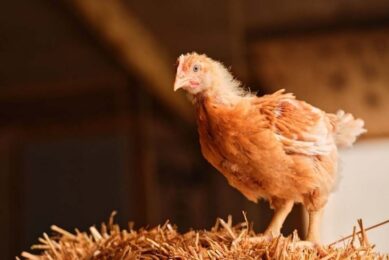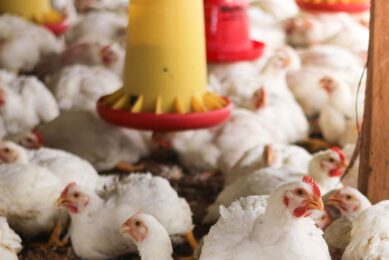US poultry farmers and companies hit hard by corn prices
Family farmers and chicken companies alike have been hit hard by the skyrocketing price and short supply of corn, a spokesman for the National Chicken Council told Congress.
“USDA’s report earlier this week confirmed that it will be much more difficult this crop year to secure an adequate supply of feed ingredients that can be procured at a cost that is both manageable and predictable,” Harrison Poultry chief executive Michael Welch told the Livestock, Dairy and Poultry Subcommittee of the House Committee on Agriculture.
Financial struggles
“The more than 40 vertically integrated chicken companies that comprise the broiler industry have financially struggled for the past four calendar quarters. Broiler companies have increasingly been squeezed throughout the past corn crop year between rising feed costs and declining prices for chicken products. A number of companies have succumbed to the severe cost/price squeeze by ceasing operations or having to sell their assets at fire-sale values.”
Welch said much of the squeeze results from the enormous, government-mandated demand from the ethanol industry, which will take around 40% of this year’s corn harvest to supply the 12.6 billion gallons of ethanol required by federal law to be blended into motor gasoline this year.
The situation is particularly hard on the family farmers who raise chickens under contract with the poultry companies, said Welch, a long-time industry executive and former chairman of NCC.
“I have outlined several critical problems, but none is more paramount than the very unfortunate situation being forced on the family farms who have lost, or are now losing, their contracts to grow broilers,” Welch said. “Disrupting or ceasing the financial flow generated by the contract payments results in not just the broiler operations being jeopardised, but in many cases results in the entire family farm being put in jeopardy.”
“I suggest that if you ask these family farmers if current ethanol policy is good policy you would not be able to find a supporter of the program,” he added.
Ethanol production
Welch said the federal government should “stop picking winners and losers” by directing so much corn into ethanol production through its three-pronged program of mandated usage, a tax credit for blending ethanol, and a protective tariff on foreign ethanol.
“Mandating the use of ethanol, subsidizing its cost, and protecting ethanol from competition is triple overkill,” he said. “Greater energy independence is a worthy goal for the United States, but the negative and unintended consequences of moving too far too fast with corn-based ethanol have become overly clear.”
The price of corn began its relentless rise in the fall of 2006, and since then, the broiler chicken industry alone has had to spend an extra $22.5 billion in higher feed costs, Welch said, putting companies under severe financial stress, pushing some out of business, and causing most others to reduce production.
Compete more fairly
Welch said Congress should change “the rules of the game” to permit animal agriculture producers to compete more fairly for the limited supplies of corn expected over the next few years.
“Included in this effort must be a ‘safety valve’ to adjust the Renewable Fuels Standard (the ethanol mandate) when there is a shortfall in corn supplies,” Welch said. “In addition, a plan should be implemented to allow a reasonable number of good, productive cropland acres to opt out of the Conservation Reserve Program (CRP) on a penalty-free basis.”
The CRP pays farmers to take cropland out of production, which Welch said is a vestige of the traditional federal “policy of abundance” in agriculture. According to a report from the Farm Foundation, the existing policy is “designed to reduce supply, restrict land use and increase demand to help increase and stabilise farm incomes.”
“That policy was developed because the United States has generally been blessed with the ability to produce more than could be consumed at profitable prices for producers,” the Farm Foundation report said. “A shift to a ‘policy of shortage’ would emphasize programs that stimulate supply and do not subsidize demand with taxpayer funds or political mandates.”
“I ask this Committee to support this well-reasoned conclusion of the report,” Welch said.
Source: National Chicken Council
Join 31,000+ subscribers
Subscribe to our newsletter to stay updated about all the need-to-know content in the poultry sector, three times a week. Beheer
Beheer








 WP Admin
WP Admin  Bewerk bericht
Bewerk bericht